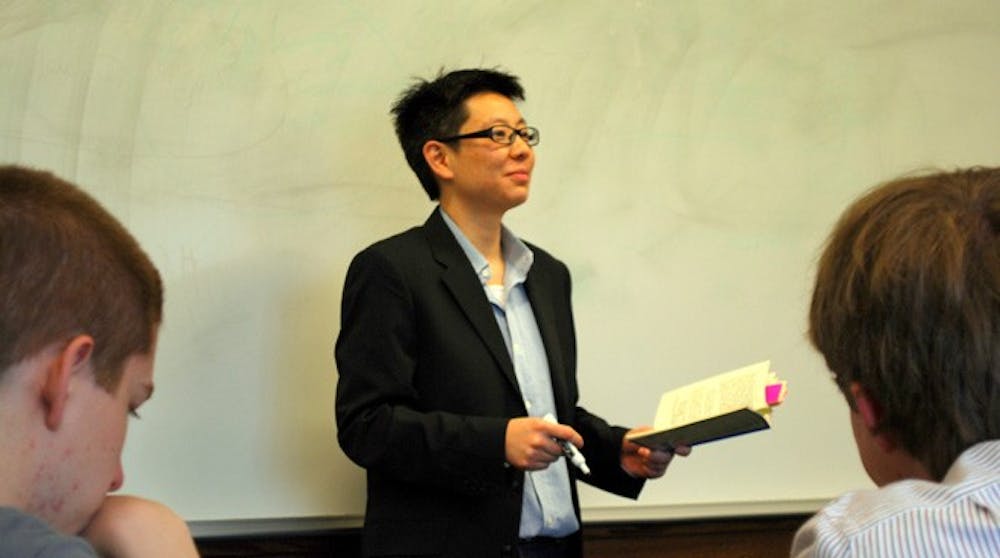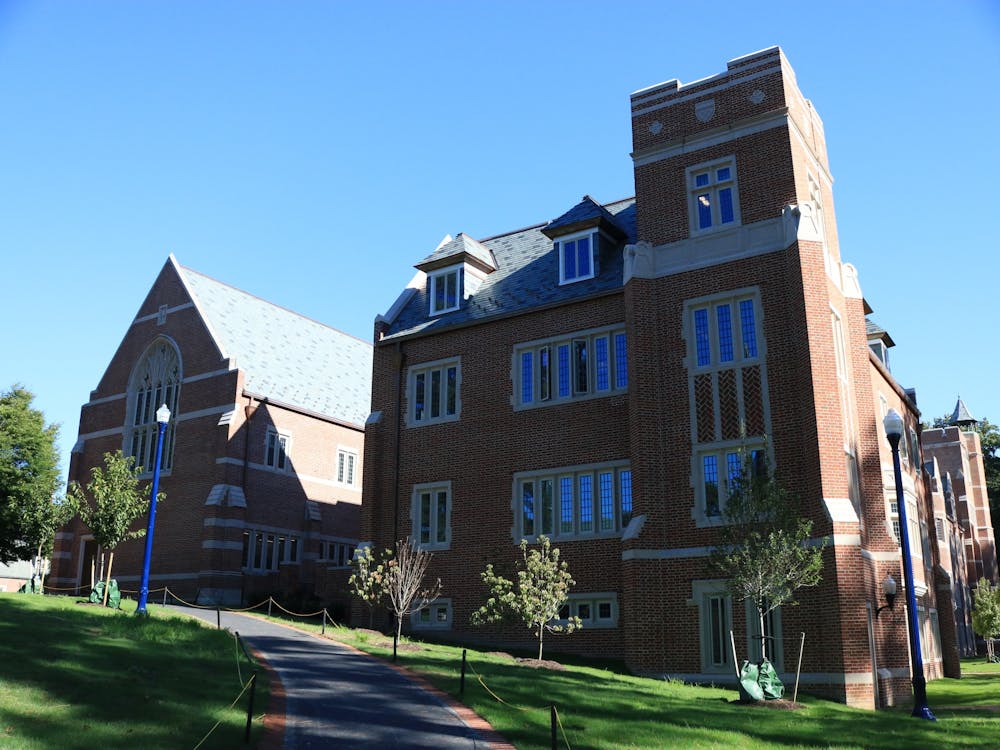Tze Loo, an assistant professor of history at the University of Richmond, will travel to Tokyo, Japan, in July to continue research on the Shuri Castle at Waseda University through a yearlong fellowship.
Loo, a native of Singapore, plans to continue her doctoral investigation about the use of cultural heritage in producing a pre-World War II Japanese identity. The Japan Society for the Promotion of Science, which awards 20 fellowships annually, will fund her work.
"It's an opportunity for me to turn the dissertation into a book," said Loo, who has been teaching at Richmond since she successfully defended her dissertation at Cornell University in July 2007.
Hugh West, chairman of the history department, spoke about Loo's approach to teaching.
"What is impressive about her, and hard to find, is that she can handle all of East Asia, particularly China and Japan," he said.
West said people usually specialized either in China or Japan, but Loo majored in Japanese history and minored in Chinese history at the University of Sydney. She said that the countries' intellectuals produced a lot of scholarship on each other.
"China and Japan are unthinkable without each other," Loo said. "You need to look at both of them."
In addition to her studies' relevance to the East Asian courses she teaches at Richmond, Loo said they have also applied to her freshmen Core classes because they relate to understanding the human experience in a different cultural context.
Because differences can occur in so many ways, Loo said she tried to get students to think about all kinds of differences by supplementing Core texts with Chinese films.
Using a familiar lens to view the world is natural, Loo said, but problems begin when people start to judge others according to what they know.
The opportunity to try on different lenses marks the value of a liberal arts education, Loo said. She said that Richmond's small size had attracted her because it favored student-professor interactions, which were less frequent at the larger universities with big-name professors where she had previously studied. Loo made her point as she joked with two students on the walk to Core class as if she were their peer.
But larger universities do offer colleagues who also work on Asia at the same time, as well as talks and seminars, Loo said. This atmosphere makes her excited to work at Waseda in Tokyo, where she studied for two and a half years between 2003 and 2005.
Enjoy what you're reading?
Signup for our newsletter
Living in Tokyo is amazing because it is busier than New York City, with something going on all the time, Loo said. Activities and clubs, or circles as they are called in Japan, are popular at the universities, which draw between 10,000 and 18,000 students. And they have a feature that may be strange in the United States - the circles are, many times, just for fun.
"They're great students," Loo said, "but they're interested in so much [else] in a way that students here are not."
She said life had been different for her there: the energy, the language, the food, the television and even the public transportation in Tokyo, where a two-hour commute to work was not unusual.
"People think about life differently from here," said Loo, highlighting the value of living abroad. "You'll see and think and learn so differently when you're there for six months as opposed to six days."
During her stay, Loo began her ongoing collaborative research with Waseda political science and economics professor Naoyuki Umemori, with whom she will continue to work during her fellowship.
"I've known him a long time," Loo said. "He's taught me a lot, probably most of what I know."
Loo said she became interested in history during her sophomore year at Sydney, when she had taken a Japanese history course with professor Rikki Kersten, who is still a mentor to her.
After learning from texts by J. Victor Koschmann, Loo went to study under him at Cornell, where he serves as the chairman of the history department. Koschmann introduced her to Umemori in 2000.
Loo's focus is the Shuri Castle, which West said had been built by people we now call Okinawans, but was turned into a national historical landmark by the Japanese when they conquered the kingdom.
The story of this one building speaks volumes about imperialism, national identity and how people manipulate collective memory, West said.
"You always like to find the hook, and this is one of those great hooks," West said.
Highlighting Loo's ability to think broadly, West said he wouldn't be surprised if she developed a new course based on her research. Loo was recommended for the Japanese government fellowship by the Social Science Research Council, which is based in New York. She will leave this July and return to teach at Richmond in August of 2010.
Contact staff writer Maura Boque at maura.bogue@richmond.edu
Support independent student media
You can make a tax-deductible donation by clicking the button below, which takes you to our secure PayPal account. The page is set up to receive contributions in whatever amount you designate. We look forward to using the money we raise to further our mission of providing honest and accurate information to students, faculty, staff, alumni and others in the general public.
Donate Now



